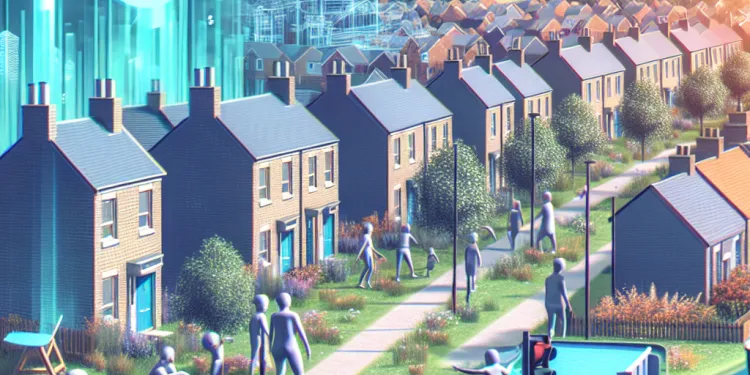
Find Help
More Items From Ergsy search
-
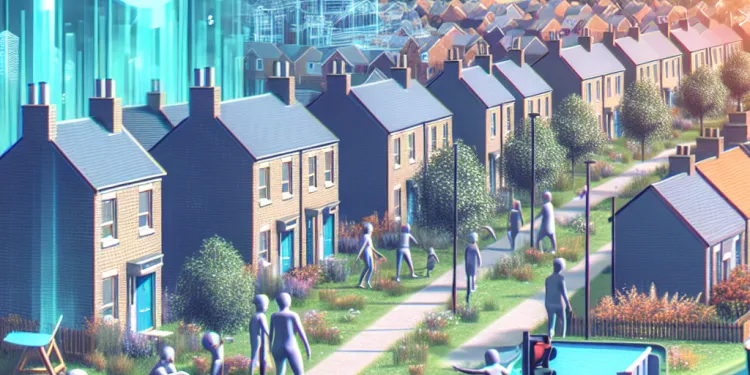
Impact of Housing Shortage on Local Communities
Relevance: 100%
-

Impact of UK Housing Crisis on Local Communities
Relevance: 74%
-

Calls for Urgent Action on GP Shortages Across Rural England
Relevance: 45%
-

The Rise of Community Food Banks: Combating Hunger Locally
Relevance: 41%
-

Addressing the Housing Crisis: Current Challenges and Solutions
Relevance: 39%
-

How can individuals contribute to the discussion on housing benefit cuts?
Relevance: 35%
-
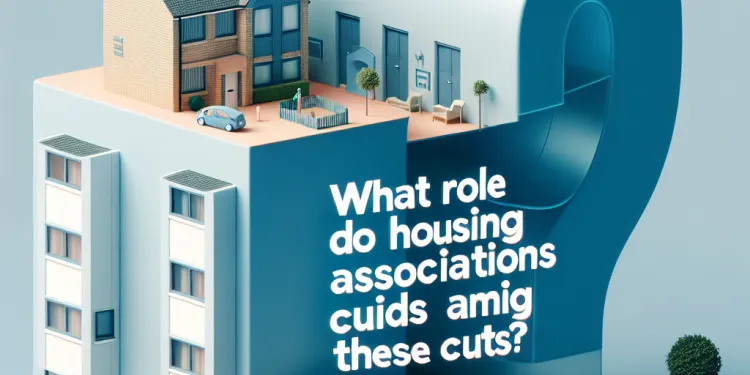
What role do housing associations have amid these cuts?
Relevance: 35%
-

How do I find alternative housing quickly if evicted?
Relevance: 34%
-

How the Shortage of GPs is Affecting Patient Care Across the UK
Relevance: 33%
-

Addressing the Cost of Living Crisis: Community Support and Resources
Relevance: 32%
-
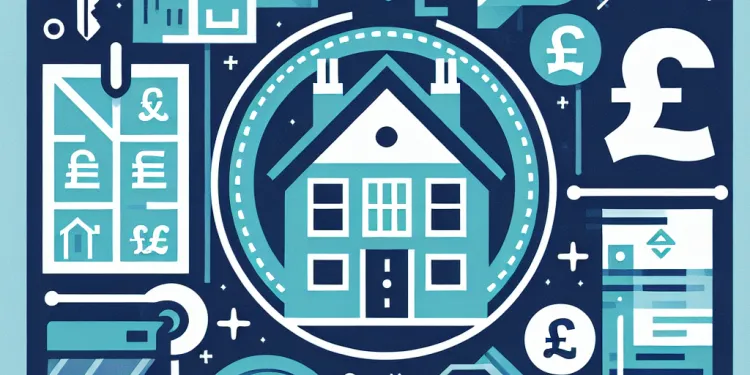
What measures are suggested to substitute the housing benefits?
Relevance: 32%
-

Addressing the Rising Cost of Living: Community Support and Resources
Relevance: 32%
-

Impact of Cost of Living on UK Communities
Relevance: 31%
-
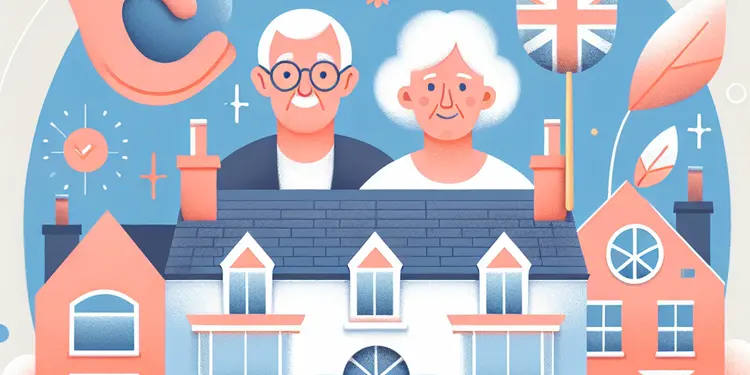
What housing assistance options are available for seniors?
Relevance: 31%
-

Local Councils Struggle with Increasing Demand for Welfare Support
Relevance: 31%
-

What are the proposed Cuts to Housing Benefits Amid Rising Rents?
Relevance: 29%
-
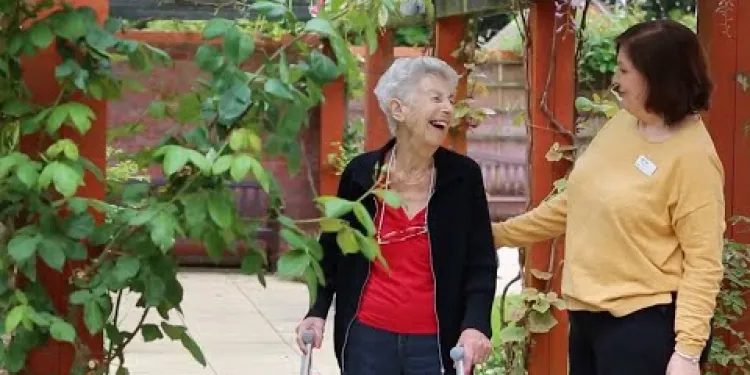
Amberwood House (Colten Care)
Relevance: 29%
-

Can community helpers receive financial assistance?
Relevance: 28%
-

What incentives are provided for sustainable housing?
Relevance: 28%
-

Is there a plan to offer additional support to offset housing benefit cuts?
Relevance: 28%
-

What is a dementia-friendly community?
Relevance: 27%
-
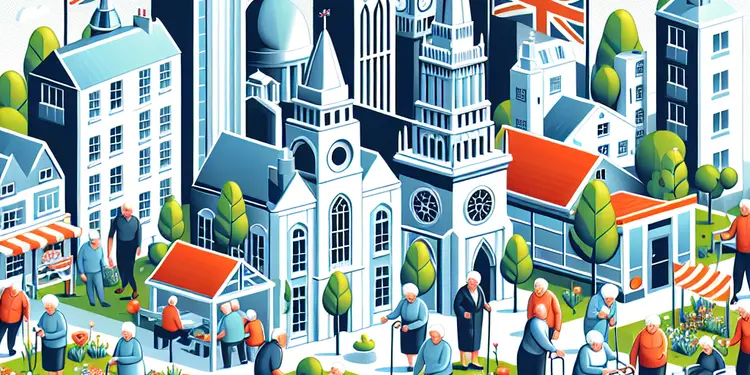
What is the role of community centers in supporting senior citizens?
Relevance: 27%
-

How can I support my local food bank?
Relevance: 27%
-

What are the potential long-term impacts of housing benefit cuts?
Relevance: 27%
-

Who will be most affected by the proposed cuts to housing benefits?
Relevance: 26%
-

What types of support are available for community helpers?
Relevance: 26%
-
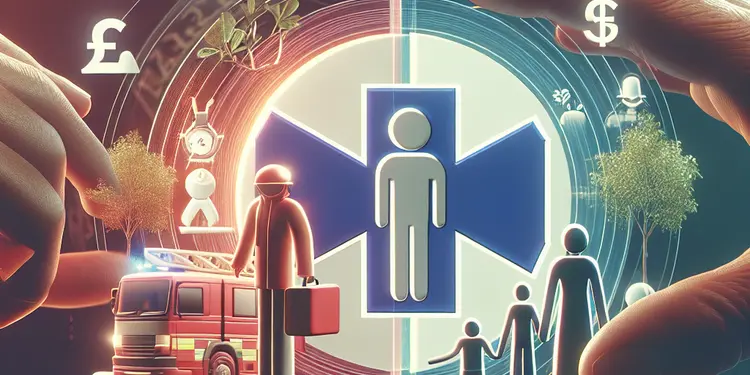
How can community helpers access emergency assistance?
Relevance: 26%
-

Is there any legal recourse for those affected by the housing benefit cuts?
Relevance: 26%
-

What is the relationship between rising rents and housing benefit cuts?
Relevance: 26%
-
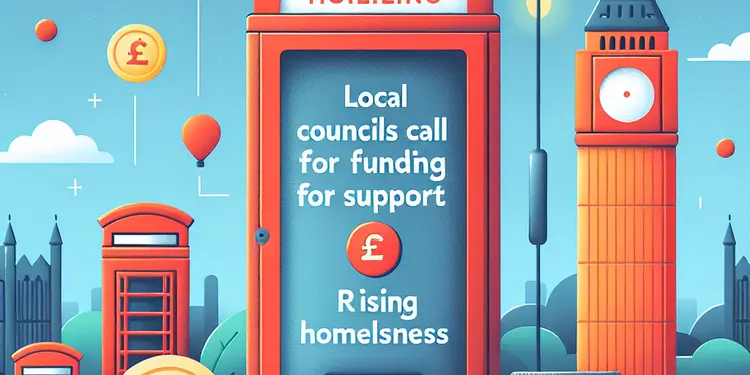
Local Councils Call for More Funding to Support Rising Homelessness
Relevance: 26%
-

Where can community helpers find networking opportunities?
Relevance: 26%
-

Can community helpers access physical health resources?
Relevance: 25%
-

What alternative solutions are being discussed to combat rising rents?
Relevance: 25%
-

Are there mentorship programs for community helpers?
Relevance: 25%
-

What help is available to helpers in the community?
Relevance: 24%
-

How can older adults find local hobby groups?
Relevance: 24%
-

UK House Prices Fall for Third Consecutive Month
Relevance: 24%
-

What is the main reason for the proposed cuts to housing benefits?
Relevance: 24%
-

What is the role of community hubs in supporting helpers?
Relevance: 23%
-
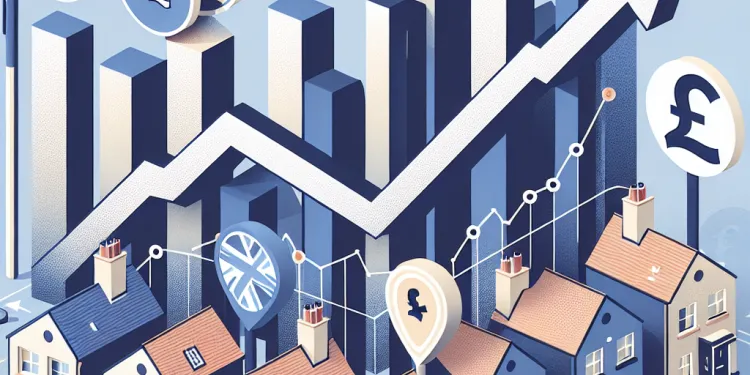
How does inflation affect the situation with housing benefits and rents?
Relevance: 23%
Impact of Housing Shortage on Local Communities
Economic Consequences
The housing shortage in the UK presents profound economic challenges. As demand exceeds supply, property prices and rents escalate, making it difficult for many individuals and families to afford housing. This situation can force people into substandard or overcrowded living conditions, thereby exacerbating poverty levels. High housing costs also leave less disposable income for other essentials such as food, education, and healthcare, leading to a decrease in overall quality of life. Furthermore, businesses may struggle to attract and retain employees if housing near their locations is unaffordable, thereby stifling local economic growth and increasing employee turnover rates.
Social Implications
The scarcity of affordable housing has significant social repercussions. Rising property prices can lead to gentrification, displacing long-standing residents and altering the cultural fabric of communities. This often results in social fragmentation, where community ties weaken as residents are forced to move away. Additionally, a lack of stable housing can severely impact mental health, contributing to stress, anxiety, and depression, especially among vulnerable populations. Homelessness rates also tend to increase in areas with severe housing shortages, straining local resources and social services.
Impact on Public Services
Housing shortages place an enormous burden on public services. Local authorities often face increased demand for social housing and other support services, yet they also struggle with limited funding and resources. The strain extends to schools and healthcare facilities, as fluctuating populations make it challenging to plan and allocate resources effectively. Overcrowding in schools can affect teacher-student ratios, leading to a decline in educational standards. Similarly, higher population densities can overburden healthcare services, increasing waiting times and reducing the overall quality of care.
Environmental Effects
The housing crisis also has environmental consequences. Land that is not optimally utilized due to zoning restrictions or planning delays can lead to urban sprawl, where growth spreads outwards rather than upwards. This pattern of development increases reliance on cars, contributing to traffic congestion and higher carbon emissions. Additionally, the housing shortage often leads to the occupation of unsuitable land, which can potentially harm local ecosystems and reduce biodiversity. Sustainable and well-planned housing developments are essential to mitigate these environmental impacts.
The Path Forward
Addressing the housing shortage requires a multifaceted approach. Policymakers need to incentivize the construction of affordable housing and streamline planning processes to reduce delays. Investment in public infrastructure and services will be crucial to support growing populations. Furthermore, innovative housing solutions such as modular homes and co-housing schemes can provide more options for affordable living. By adopting these measures, the UK can alleviate the adverse effects of housing shortages and foster more resilient, thriving local communities.
Impact of Housing Shortage on Local Communities
Economic Consequences
There are not enough homes in the UK, and this causes big money problems. When there aren't enough houses, prices go up. People have to pay more to rent or buy homes. This makes it hard for families and people to find places to live. Some might have to live in crowded, small, or bad conditions. This can make them poorer. High housing costs mean people have less money for things like food, school, and doctors. It can make life harder. Businesses might find it difficult to hire workers if homes nearby are too expensive. This can slow down local growth and cause more people to leave their jobs.
Social Implications
Not having enough affordable homes affects people and their communities. When house prices rise, it can push people out of their neighborhoods. This changes the community, and people might feel less connected. Not having a stable home can make people feel stressed, anxious, or sad. It is especially hard for people who are already having a tough time. More people might end up without homes. This puts pressure on local support services.
Impact on Public Services
When there aren't enough homes, it puts pressure on public services. Local governments need to provide more social housing and support, but they might not have enough money or resources. Schools and hospitals feel the pressure, too. More people mean it's hard to plan for enough resources. Schools can become crowded, making it hard for teachers to teach well. Hospitals might have longer waiting times because they have to help more people.
Environmental Effects
The housing problem also affects the environment. Sometimes, land is not used well because of planning rules. This can cause cities to spread out instead of building up. People might need cars more, causing traffic and more pollution. Often, homes are built on land that isn't good for housing, which can hurt local plants and animals. It is important to plan better and build homes that are good for the environment.
The Path Forward
To fix the housing problem, many things need to happen. Leaders should help build more affordable homes and make planning easier. Investing in public services like roads, schools, and hospitals will help as more people move in. New ideas like building modular homes or shared living spaces can make housing cheaper. By doing these things, the UK can help communities become stronger and make the housing problem better.
Frequently Asked Questions
What is housing shortage?
Housing shortage refers to a situation where the demand for housing exceeds the supply available in the market, leading to a lack of affordable and suitable housing options for people.
What causes housing shortages in the UK?
Factors causing housing shortages in the UK include population growth, limited land availability for development, rising property prices, slow pace of new construction, and regulatory or planning restrictions.
How does housing shortage affect local communities?
Housing shortages lead to increased competition for available properties, higher rental and purchase costs, overcrowding, and can strain local infrastructure and services such as schools and healthcare.
What impact does housing shortage have on property prices?
Housing shortages often drive up property prices due to increased demand and limited supply, making it difficult for people, especially first-time buyers, to afford homes.
How does housing shortage contribute to homelessness?
Housing shortages contribute to homelessness by limiting access to affordable housing, forcing lower-income individuals and families into precarious living situations or onto the streets.
What is the role of local councils in addressing housing shortages?
Local councils are responsible for planning and permitting new housing developments, providing affordable housing options, and managing local housing policies to address shortages and support their communities.
How do housing shortages impact local economies?
Housing shortages can constrain economic growth by limiting workforce mobility, increasing living costs, and deterring businesses from investing in high-cost areas due to concerns over employee housing availability.
What measures can be taken to alleviate housing shortages?
Measures to alleviate housing shortages include increasing the construction of affordable housing, reforming planning laws, incentivising private sector development, and improving public transportation to make more areas accessible.
How does housing shortage affect rental markets?
Housing shortages drive up rental prices due to high demand and limited supply, which can lead to increased competition for rentals and displacement of lower-income tenants.
What are the environmental impacts of housing shortages?
Environmental impacts can include urban sprawl, which leads to loss of green spaces and increased commuting, and the pressure to build on undeveloped land, potentially harming ecosystems.
How does housing shortage influence social inequality?
Housing shortages exacerbate social inequality by making it harder for low-income families to access good quality and affordable homes, leading to increased economic disparities and social segregation.
Are there government programs to help with housing shortages in the UK?
Yes, government programs such as the Help to Buy scheme, affordable housing projects, and various grants and incentives for developers aim to address housing shortages and improve housing affordability.
How has the COVID-19 pandemic impacted housing shortages?
The COVID-19 pandemic has exacerbated housing shortages by slowing down construction projects, increasing financial insecurity for many families, and boosting demand for certain types of housing, such as larger homes with outdoor space.
What is the impact of housing shortages on mental health?
Housing shortages can adversely affect mental health due to stress and anxiety over insecure housing, financial pressure from high housing costs, and poor living conditions in overcrowded or unsuitable accommodations.
Can housing shortages affect educational outcomes for children?
Yes, housing shortages can impact children's educational outcomes by causing instability and frequent moves, leading to disruptions in schooling and a lack of conducive environments for study and development.
What is not enough houses?
Sometimes there are too many people and not enough houses. This is called a housing shortage. It means some people might not have a place to live.
To help understand this better, you can:
- Look at pictures of houses and people to see the difference.
- Ask someone you trust to explain more.
A housing shortage means there are not enough homes for everyone who needs one. This makes it hard for people to find houses they can afford and that are right for them.
Why are there not enough homes in the UK?
There are not enough houses in the UK because:
- More people need homes.
- There is not enough land to build on.
- Houses are getting more expensive.
- New houses are built slowly.
- Rules make building difficult.
For those needing help reading, try using large print, listen to the text with reading apps, or ask someone to read with you.
How does not having enough homes affect local people?
When there aren't enough homes, people might have to live in very crowded places. This can make it hard to feel safe and happy. It might be difficult to find a good place to live that doesn't cost too much money.
Families may need to move away, which can break up friendships and make people feel lonely. Schools and shops might close if too many people leave.
Using pictures or talking with someone else can help us understand this better.
When there aren't enough homes, it can cause problems. People have to compete to find a place to live. This makes renting or buying a home cost more money. Too many people might live in one place, which makes it crowded. This can also make it hard for schools and hospitals to help everyone.
How does not having enough houses affect house prices?
When there are not enough houses, prices go up. This is because many people want to buy, but there are not enough homes for everyone. It makes it hard for people, especially those buying a home for the first time, to find one they can pay for.
Here are some tools that can help:
- Budgeting Apps: Use apps to help you save and manage your money.
- Home-Buying Guides: Look for simple guides that explain how to buy a house.
- Talk to Experts: Ask questions and get help from people who know about buying homes.
How does not having enough homes make people homeless?
When there are not enough homes for everyone, some people might not have a place to live. This is called "homelessness."
Here are some reasons why:
- Too few homes: If there aren't enough homes, people might not find a place to live.
- Cost too much: If homes are too expensive, some people can't afford them.
- More people: If lots of people move to a place, there might not be enough homes for everyone.
Ways to help understand:
- Use pictures or drawings to see why there are not enough homes.
- Talk to someone who can explain more.
- Watch videos that explain homelessness in simple words.
There are not enough houses for everyone. This makes it hard for people to find a place they can afford. When houses cost too much, some people have to live in unsafe places or end up with no home at all.
To understand this better, try using pictures or videos that show how houses help us live safely and comfortably.
What do local councils do about not having enough houses?
Local councils help plan where new houses will go. They give permission for building new houses. They also help people find homes they can afford. Councils make rules to make sure there are enough houses for everyone. This helps the people in their area.
How do not having enough houses affect local money and jobs?
When there aren't enough homes, it causes problems. People might find it hard to move for jobs. It can also make it expensive to live. Businesses might not want to set up in those places because their workers can’t find homes.
To understand better, you can use tools like text-to-speech or picture dictionaries. These tools can help make reading easier and more fun.
How can we make sure everyone has a home?
To help with the housing problem, we can do a few things:
- Build more homes that people can afford.
- Change the rules to make building new homes easier.
- Encourage businesses to make more houses.
- Make buses and trains better so people can live in more places.
What happens to renting when there are not enough houses?
There are not enough homes for everyone. This makes rent cost more money because many people want a place to live, but there are only a few homes. When this happens, people have to compete to get a place to live. It can make it hard for people who do not have a lot of money to stay in their homes.
How does not having enough houses hurt the environment?
When cities grow bigger, we can lose parks and green areas. This can make people travel more to get to work. We might need to build on land that animals and plants live on, which can hurt them.
How does not having enough homes make life unfair for people?
It is hard for people to find a good place to live. This can be very tough for families with less money. They might not find good and cheap homes to live in. This makes life unfair for them. It can also make different groups of people live far apart.
Here are some tips that might help:
- Look for help from local housing charities or groups.
- Check if there are programs that can help with finding a home.
- Use easy-to-read websites to find homes.
Does the UK government have help for people needing homes?
Yes, the UK government has programs to help people find homes. These programs are for people who need help with housing. If you need a home, you can ask for help. You can call a government office or look at their website to find out more. You can also ask someone you trust to help you. They can be a friend, family member, or support worker.
Yes, the government has programs to help people get homes. These programs are called things like Help to Buy, affordable housing projects, and grants for builders. They want to make sure there are more houses and that people can afford them.
If you find reading hard, you can use apps that read text out loud or ask someone to read with you. Drawing pictures of the ideas can also help you understand better.
How has the COVID-19 pandemic changed the problem of not having enough homes?
COVID-19 has made it harder for people to find homes. Many people need houses, but there are not enough. The virus made this worse because it slowed down people building new homes and made it tough for people to move.
To understand more, you can use pictures or videos that explain these changes. Also, talking with friends or family can help you learn new ideas about homes and the virus.
The COVID-19 pandemic has made it harder for people to find homes. Building new houses has slowed down. Many families have less money now. More people want houses with big rooms and gardens.
How does not having enough houses affect how we feel?
When there aren't enough houses for people, it can make us feel sad or worried. People need safe places to live to feel happy. If we don't know where we will live, it can make us stressed. Feeling stressed or worried for a long time is not good for our minds. It is important to talk about how we feel. Drawing pictures or talking to someone we trust can help.Not having enough homes can make people feel upset and worried. This happens because they might not know where they will live, have too little money to pay for a home, or live in places that are too small or not nice enough.
If you are feeling this way, there are things that can help. Talking to someone you trust can make you feel better. Using apps with calming music or breathing exercises might help you relax. Writing down your feelings in a journal can also be a good way to feel better.
Can not having enough homes change how well kids do in school?
When there are not enough homes, kids may find it hard to do well in school. This is because some kids might have to move a lot or live in crowded places. This can make it hard for them to study or sleep well.
It helps to have a quiet place to do homework. Kids can also ask teachers for help if they are having trouble. Parents can talk to schools about any problems at home. Schools might have tools and people who can help.
Yes, not having enough homes can make it hard for kids in school. Moving a lot can stop kids from learning well because they might have to change schools often. This makes it tough for kids to have a quiet place to study and learn.
Useful Links
This website offers general information and is not a substitute for professional advice.
Always seek guidance from qualified professionals.
If you have any medical concerns or need urgent help, contact a healthcare professional or emergency services immediately.
Some of this content was generated with AI assistance. We’ve done our best to keep it accurate, helpful, and human-friendly.
- Ergsy carfully checks the information in the videos we provide here.
- Videos shown by Youtube after a video has completed, have NOT been reviewed by ERGSY.
- To view, click the arrow in centre of video.
- Most of the videos you find here will have subtitles and/or closed captions available.
- You may need to turn these on, and choose your preferred language.
- Go to the video you'd like to watch.
- If closed captions (CC) are available, settings will be visible on the bottom right of the video player.
- To turn on Captions, click settings .
- To turn off Captions, click settings again.
More Items From Ergsy search
-

Impact of Housing Shortage on Local Communities
Relevance: 100%
-

Impact of UK Housing Crisis on Local Communities
Relevance: 74%
-

Calls for Urgent Action on GP Shortages Across Rural England
Relevance: 45%
-

The Rise of Community Food Banks: Combating Hunger Locally
Relevance: 41%
-

Addressing the Housing Crisis: Current Challenges and Solutions
Relevance: 39%
-

How can individuals contribute to the discussion on housing benefit cuts?
Relevance: 35%
-

What role do housing associations have amid these cuts?
Relevance: 35%
-

How do I find alternative housing quickly if evicted?
Relevance: 34%
-

How the Shortage of GPs is Affecting Patient Care Across the UK
Relevance: 33%
-

Addressing the Cost of Living Crisis: Community Support and Resources
Relevance: 32%
-

What measures are suggested to substitute the housing benefits?
Relevance: 32%
-

Addressing the Rising Cost of Living: Community Support and Resources
Relevance: 32%
-

Impact of Cost of Living on UK Communities
Relevance: 31%
-

What housing assistance options are available for seniors?
Relevance: 31%
-

Local Councils Struggle with Increasing Demand for Welfare Support
Relevance: 31%
-

What are the proposed Cuts to Housing Benefits Amid Rising Rents?
Relevance: 29%
-

Amberwood House (Colten Care)
Relevance: 29%
-

Can community helpers receive financial assistance?
Relevance: 28%
-

What incentives are provided for sustainable housing?
Relevance: 28%
-

Is there a plan to offer additional support to offset housing benefit cuts?
Relevance: 28%
-

What is a dementia-friendly community?
Relevance: 27%
-

What is the role of community centers in supporting senior citizens?
Relevance: 27%
-

How can I support my local food bank?
Relevance: 27%
-

What are the potential long-term impacts of housing benefit cuts?
Relevance: 27%
-

Who will be most affected by the proposed cuts to housing benefits?
Relevance: 26%
-

What types of support are available for community helpers?
Relevance: 26%
-

How can community helpers access emergency assistance?
Relevance: 26%
-

Is there any legal recourse for those affected by the housing benefit cuts?
Relevance: 26%
-

What is the relationship between rising rents and housing benefit cuts?
Relevance: 26%
-

Local Councils Call for More Funding to Support Rising Homelessness
Relevance: 26%
-

Where can community helpers find networking opportunities?
Relevance: 26%
-

Can community helpers access physical health resources?
Relevance: 25%
-

What alternative solutions are being discussed to combat rising rents?
Relevance: 25%
-

Are there mentorship programs for community helpers?
Relevance: 25%
-

What help is available to helpers in the community?
Relevance: 24%
-

How can older adults find local hobby groups?
Relevance: 24%
-

UK House Prices Fall for Third Consecutive Month
Relevance: 24%
-

What is the main reason for the proposed cuts to housing benefits?
Relevance: 24%
-

What is the role of community hubs in supporting helpers?
Relevance: 23%
-

How does inflation affect the situation with housing benefits and rents?
Relevance: 23%


